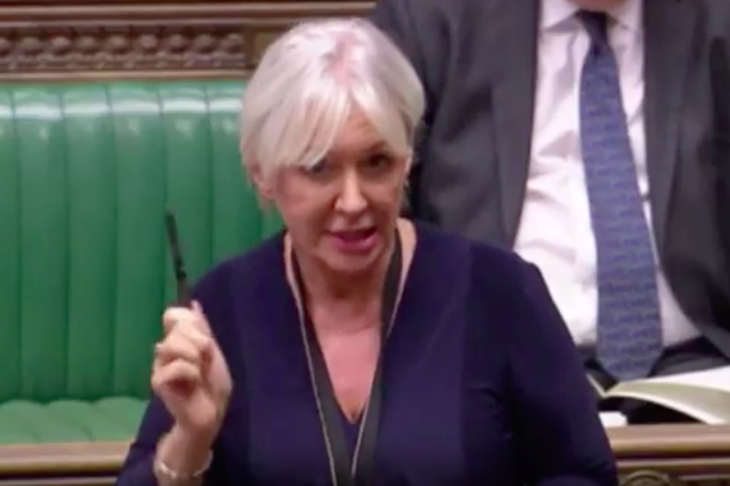One of the factors driving wavering Tory Members of Parliament towards saying they will vote for Theresa May tonight is the way in which the rebel operation appears to be being conducted. It’s not just that the airwaves were dominated this morning by rather strident Brexiteers as opposed to MPs from a range of persuasions. It’s also the heavy-handed language that May’s opponents are using behind the scenes as they argue with colleagues.
A number of MPs tell me they have been galvanized to support May after a ‘fairly brutal’ exchange in the Conservative MPs WhatsApp group in which Nadine Dorries, who has long called on May to consider her position, managed to insult her colleagues. She wrote:
‘Fundamental point is though, which MP with a majority less than 5,000 is going to vote to guarantee she is kept in place for 12 months and possibly lead us into a [General Election]? You know our MPs though, they have called the vote tonight so that MPs don’t have long to think, she will make her speech, they will clap like seals, float into the voting booth on the tide of euphoria and then, when they lose their seats in a GE think, why the fuck did I do that?’
Other MPs tried to talk Dorries down, with Mark Menzies telling her to ‘give it a rest’, and Steve Brine suggesting a WhatsApp amnesty for 24 hours, which sounds optimistic.
Another MP who had previously told me they were unsure how they would vote in the no confidence motion today confirmed that they would ‘support May to kill the mad people’, which shows that there is at least as much frustration with some Brexiteers as there is with the way May has been running the show over the past few months.
Interestingly, not all MPs have received calls from whips or Cabinet ministers. One who has now declared their support publicly says no-one got in touch at all to check where they were likely to go, despite this MP not being someone whose loyalty could be guaranteed. If the whips are as nervous about the margin of the result as this afternoon’s line from Downing Street about what the vote means might suggest, then they’d better make sure they’ve spoken to everyone before the 1922 Committee meeting tonight.
This article was originally published on The Spectator’s UK website.

























